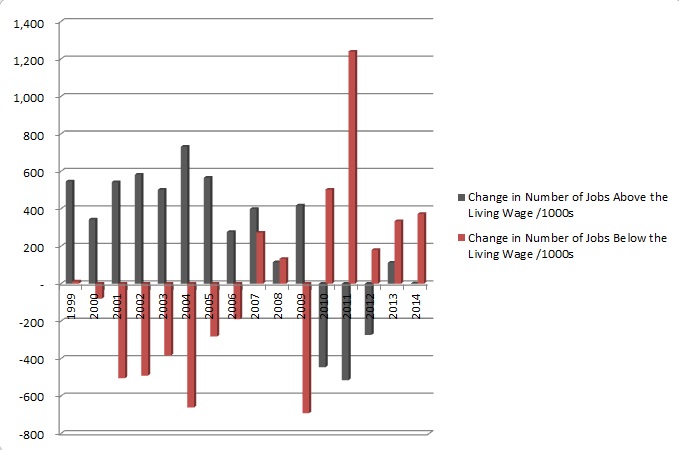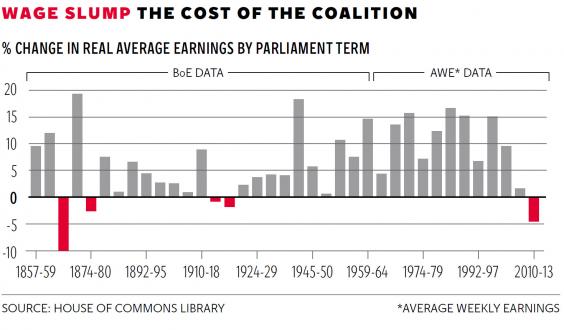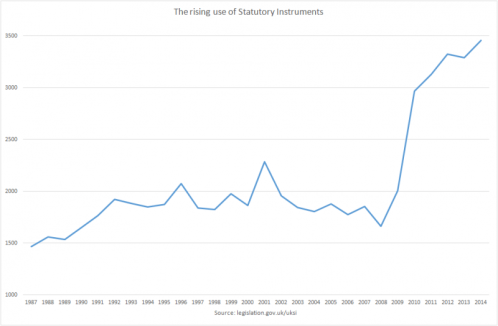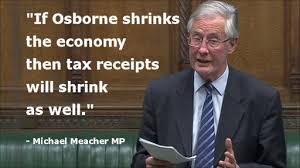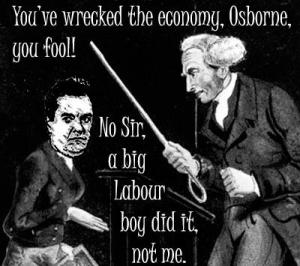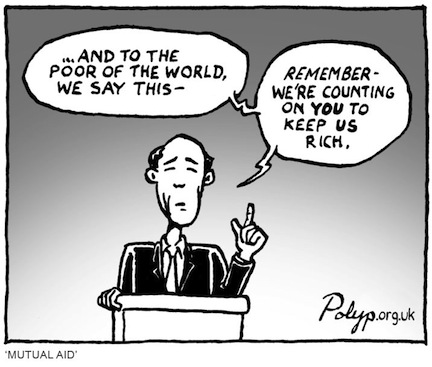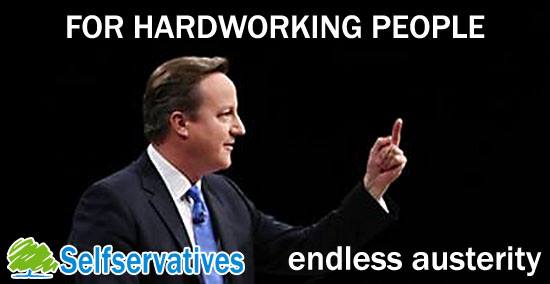
A US outsourcing company, Concentrix, which was awarded a £75m contract by Her Majesty’s Revenue and Customs (HMRC) – the department responsible for collecting taxes and paying out certain benefits – has been accused of exercising a “reign of terror” over people who claim tax credits.
The private company was contracted to “reduce fraud and error” in the tax credit system, and to carry out “compliance checks” in a bid to save the government money. More than 500 civil servants have been deployed to help the private company resolve problems it caused by stopping people’s tax credit payments. This includes tax credit awards for the children of both in work and out of work parents, as well as child care payments.
The company has issued an apology for failures that have left many people with no benefit payments for up to two months, leaving them without money for essentials. The US firm has been accused of “incorrectly” withdrawing tax credits.
Officials from HM Revenue and Customs told a committee of MPs that a breakdown in customer services at Concentrix had resulted in only 10% of calls being answered on some days.
Many thousands of people had their tax credits stopped after Concentrix said they were making “fraudulent claims”. In what can at best be described as Kafkasque taunting, one poor woman was told she was in a relationship with a chain of newsagents, another with the philanthropist and poverty researcher, Joseph Rowntree, (who died in 1925,) according to a BBC report. A teenage single mum receiving tax credits was told she was married to a dead pensioner, after having her child tax credit withdrawn. Another mother was told she was living with the previous tenants of the house that she had lived alone in for two and a half years with her son, after her child tax credit was also withdrawn.
It’s difficult to conceive that these allegations could possibly have been made in genuine error. Mumsnet, an online forum for parents, has had over a thousand comments from parents who received letters from Concentrix demanding evidence out of the blue that they live alone. This was just on one page of ten on the site about the unreasonable demands for “compliance” that the company has been making of parents.
Many have been forced to print off documents like utility bills which were online, or pay for numerous backdated bank statements, to provide endless evidence of their circumstances. This is a costly process for people who need additional support in the first place, and many had already had their payments ended. The main reason for “compliance checks” has been suspicion of an “undisclosed partner,” challenging the legitimacy of a single claim, based on other data indicating that another adult is living at the address.
In October 2010, HMRC and the Department for Work and Pensions released a joint error and fraud strategy. As a result, HMRC increased its compliance activity across the tax credits system and introduced the use of data from credit reference agencies to inform compliance decisions. Through this process, single claims were identified where there was an indication that there may be a second adult living with the claimant – an “undisclosed partner”. However, credit reference agency data is notoriously unreliable.
Compliance
The “compliance framework” is a government method of preempting and preventing “non-compliance”, based on data collection and “analysis” by private companies that are hired by the public service sector. Instead of being “reactive” and acting after a “transaction”, the private companies are using “insights” to calculate “high risk” claimants. Ultimately, the aim is to cut costs, “through real-time auditing and prevention of fraud and error, agencies can collect the right amount of taxes to help ensure the right people receive the benefits they deserve.” (My bolding).
And: “Services can be embedded in processing functions to prevent non-compliance.”
The rationale: “Struggling with increasing demand for services amid widespread economic constraint, human services organizations face a major dilemma—how to minimize costs while improving services and ensuring accurate benefit distribution.
By using analytics, forward-thinking human services organizations are rising above this challenge. They are preventing, detecting and mitigating transactions where there is error, fraud or abuse. And they are using information gleaned from analytics to significantly reduce operating costs and drive business results.” (From: Accenture Intelligent Processing Services).
I’ve discussed elsewhere that the increasing use of a narrative of “objectivity” and emphasis on “analytics”, detachment and quantification, associated with small state ideology and austerity, tends to place some social groups at a psychological distance from administrators, and objectifies them, as if people claiming support because they can’t work, or because their wages are low and exploitative, are a homogenous group of people, bound by characteristics rather than circumstances in a context of political decision-making.
It becomes easier to disassociate from someone you view “objectively” and to distance yourself from the impact of your calculated and target-led decision-making, constrained within a highly political framework. Such an objectification of a person or group of people serves to de-empathise us, which is a key characteristic requirement of neoliberal ideology, embedded in inhumane “small state” policy and extended via administrative (and outsourced, privatised) practices. It leaves us much less likely to relate to the circumstances, emotions or accept the needs and choices of others. Such interactions become much more open to bureaucratic abuse and political exploitation.
The Institute for Fiscal Studies (IFS) have previously undertaken research into the costs of compliance on individuals, and their report refers to the time, money and psychological costs that are being imposed on applicants for, and recipients of, benefits and tax credits and on others by meeting all the various rigid requirements placed on them by social security and tax credit law and statutory authorities.
However, this study was undertaken before the Conservatives increased conditionality and compliance requirements further, in the radical Welfare Reform Act 2012. The burdens on those needing welfare support have grown substantially since the research was completed. (See: Understanding the Compliance Costs of Benefits and Tax Credits. )
Some of the people affected gave emotional testimonies, as they told the work and pensions select committee that they had been forced to borrow money and go to food banks as a result of the hardship caused by Concentrix’s actions.
The committee was told that of the 45,000 payments stopped, nearly 15,000 had appealed so far and that “90% – 95%” had been successful in overturning the decision.
HMRC officials said they first became concerned of problems at Concentrix in August when they started receiving reports that only 10% of calls were being answered within five minutes – the target was 90%.
Jon Thompson, chief executive of HMRC, said “a collapse in basic customer service” had occurred caused by too few staff being on hand, and that he’d personally taken the decision not to renew Concentrix’s contract. It ends in March next year.
Frank Field, the chair of parliament’s work and pensions committee, has said that a company’s “reign of terror” over tax credit recipients will be drawing to a close, after HMRC decided not to renew its contract.
On Thursday, the work and pensions committee heard from claimants who wrongly had their tax credits stopped and suffered the distress and humiliation of having to borrow money or visit food banks to feed their children.
The committee also heard that, at the height of the crisis, only 1% of the calls being made to Concentrix were actually being answered.
The committee issued a comment on the “extraordinary” evidence it heard, from four single parents who had wrongly had their tax credits stopped, senior staff from Concentrix, including senior Vice President Philip Cassidy, and HMRC, including Chief Executive and Permanent Secretary Jon Thompson.
Claimant humiliation and appalling customer service
The Committee heard about:
- The humiliation of claimants who were forced to borrow money from friends and family in order to feed their children as they were left without benefits, to which they were ultimately found to be entitled, for up to seven weeks
- Appalling customer service which saw claimants calling up to 70 times to get through as just 1% of calls were answered by Concentrix at the height of the crisis. One claimant finally waited 90 minutes to speak to a Concentrix adviser on an 0845 number, at great personal expense
- Appeal success rates of 73% according to HMRC or 90-95% according to Concentrix; either way a terrible indictment of the original decision-making process
- Refunds to claimants taking place over a series of months. In one case, a single mother lost housing benefit because a refund of wrongly withdrawn tax credits took her over an income threshold. Others will have taken on debts in the meantime
- Repeated buck-passing between Concentrix and HMRC, who signed the contract, as to who was responsible
- HMRC Permanent Secretary Jon Thompson was unable to explain what had gone wrong and why
Committee to seek clarifications from Concentrix and HMRC
The Committee has agreed to write to both Concentrix and HMRC demanding urgent information regarding:
- How the performance of Concentrix was monitored by HMRC
- Levels of staffing at Concentrix, in particular during August 2016, and the training provided to staff
- Steps HMRC will take to compensate claimants, ensure they are not further disadvantaged, and review decisions taken by Concentrix
- Assurance that Concentrix will not be compensated for HMRC taking much of their responsibilities back in-house
The Committee also plans to issue a report into the scandal.
Chair’s comment
Frank Field MP, Chair of the Work and Pensions Committee, said:
“The Committee was astonished by the extraordinary evidence we heard. From Concentrix we saw a company desperately out of their depth and unable to deliver on the contract awarded to them by HMRC. From senior HMRC officials we saw a palpable disregard for the human implications of this gross failure of public service. From the tax credit claimants we saw dignity in the face of appalling and traumatic experiences.
We have no doubt that many people similarly affected have been unable to come forward. I welcome HMRC’s swift action on the Concentrix contract, but that does not excuse them for ever having allowed this to happen.”
—
You can listen to the work and pensions committee meeting about the Concentrix and tax credits controversy here: https://goo.gl/q0mGiR
See also:
The government’s tax credit Claimant Compliance Manual
Tax credits: undisclosed partner interventions – Child Poverty Action Group
I don’t make any money from my work. But you can help by making a donation and support me in continuing to research and write informative, insightful and independent articles, and to provide support to others. I’m disabled because of my illness (lupus) and co-run support groups for other disabled people going through the assessment and appeals processes. The smallest amount is much appreciated – thank you.

![]()


